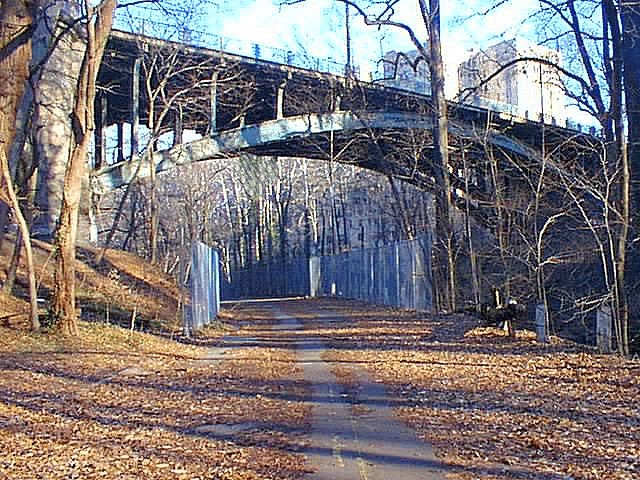| |
The
Cause

|
 
Land
Use - Space


It is pretext that repairing Klingle Road
will decrease "green space" -- the road already exists.
Repairing the washouts and fixing the drainage will not reduce the
surrounding green space.
The claim that closing Klingle Road will benefit all of the residents of
metropolitan Washington is specious, and is contradicted by the
experience of the past ten years and from the endorsements
we have received. Closing the street benefits
only a very few people whose property is located in the neighborhood
near the restricted section of Klingle Road.
The public right of way is a very narrow strip of land (50 feet wide) --
turning this narrow right of way into a park will not prevent the
abutting private landowners from developing their land, thereby ruining
the park and its "green space."
The "park" proposal is rife with problems: There is no
parking for cars and buses. It will be impossible to maintain
without vehicular access. The park will be inaccessible to
emergency vehicles. The restricted section of the right-of-way is
one-half mile long, steep in places, and doesn't go anywhere -- very few
besides the local neighbors use this "park." The area is
too steep for people to get themselves and their provisions to the
proposed picnic sites.
Creating the park will require expenditure of significant public monies
to address drainage problems, remove the roadbed, etc. Without
Federal funding, this will be very expensive for DC.
Many roads in the District are built along streambeds, including Piney
Branch Parkway, Beach Drive, East and West Beach Drive, Beach Street,
Broad Branch Road, Joyce Road, Normanstone Drive, Rock Creek Parkway,
Canal Road, and G-W Parkway -- streambeds are common sense and
traditional places to build roadways.
Klingle Road cannot be "returned" to parkland as some suggest
-- the road preexisted Rock Creek Park for decades.
|
|

